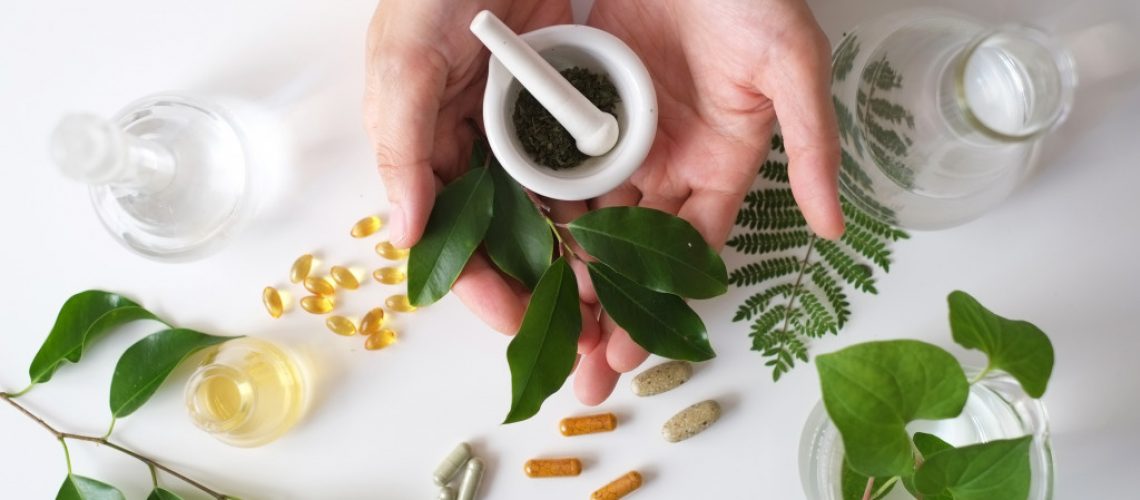Alternative medicine, particularly herbal medicine, has gained popularity in the last decade. Now, it’s becoming less of an alternative. More and more people are opting for herbal medicines as primary medication. Despite doctors’ advice that conventional treatments are scientifically backed and more effective, people still go for alternative medicine.
The rising popularity of alternative medicine stemmed from various reasons. For example, people want natural remedies. Since brands described their products as “natural” and promoted their benefits, consumers developed an aversion toward chemical products, like most medicines. In addition, articles about chemical ingredients causing cancer had spread. It intensified people’s fear of “unnatural” products.
Furthermore, many drugs cause side effects. They include fatigue, weight fluctuations, mood swings, upset stomach, and sleep issues. On the other hand, herbal medicines rarely lead to side effects.
While the pharmaceutical industry hasn’t died yet, manufacturers of private label nutraceuticals are booming. Nutraceutical combines “nutrients” and “pharmaceutical.” But they’re focused on prevention instead of healing, unlike most conventional medicines.
For those reasons, herbal medicines are becoming more rampant in the mainstream market. Should you start a herbal medicine shop, or is it safer to stick to dealing with conventional drugs?
Reasons to Start a Herbal Shop
If you’re fine with being the town’s resident apothecary, that can be all the reason you need to start a herbal shop. But from an entrepreneurial perspective, you should prioritize other factors more than a particular reputation.
For instance, is there a demand for herbal medicine in your area? Demand is the main factor that generates sales. If there’s a market, you can make a sale. Otherwise, you’re setting your shop up for failure.
So, like any other aspiring entrepreneur, create a business plan. Name all the products you want to sell, determine your target market, and conduct market research. Additionally, include the strategies that will attract customers to your shop.
Determining your target market may be the most challenging part. It needs to be specific, not a broad group of people like females, males, mothers, or holistic medicine practitioners. The last is close, but you can still find a niche within holistic medicine practitioners.
You can determine the reasons people switch to alternative treatments. It will help you identify the group of people who may be interested in your herbal medicines. For instance, people found conventional treatments ineffective, so they sought complementary treatments. Identify those people and use them as a basis for targeting a more specific niche.
Once you’ve finally determined your target market, you’re a step closer to opening. Ensure that you have a reputable supplier, an accessible location, and an efficient business operation plan. People who use alternative medicine seek to connect with their providers, so they may expect you to attend to them when choosing a particular herbal medicine.
Therefore, if you have good business and people skills, you will succeed in running a herbal medicine shop.
Popular Herbs
Your herbal medicine shop will sell well if it offers popular herbs. Avoid focusing on an unknown herb and using marketing spiels to sell it. Despite the growing fame of herbal medicine, note that they’re still controversial.
The biomedical community continued criticizing Chinese medicine even after WHO has formally accepted it. They maintain that Chinese herbal medicine has unknown efficacy and potential toxicity that may harm unsuspecting consumers. The biomedical community also notes the animal cruelty behind some Chinese medicines, such as those derived from pangolins and rhinos.
Hence, stick to reputable herbal remedies and avoid medicines that aren’t plant-based. These herbs are well-known in America, thereby safe to sell:
- Ginseng
- St. John’s Wort
- Turmeric
- Ginger
- Valerian root
- Chamomile
- Gingko Biloba
- Coneflower
- Elderberry
You can sell those herbs in different forms, including topical oils, capsules, and teas.
The Truth About Herbal Medicine’s Efficacy

Anyone selling herbal medicine will confidently tell you that it’s effective. But to maintain your customers’ trust and loyalty, you must tell them the truth.
Herbal medicine is used to help prevent and treat many diseases. However, herbs should not replace conventional treatments. If a customer asks you which herb can heal their diabetes, recommend Gingko Biloba, but tell them that it should only be a complementary treatment, not primary. Gingko Biloba has a scientific rating of 3/5, and its evidence scores 3.5/5. Hence, it would be best if you didn’t claim that it’s 100% effective.
Turmeric supplement scores 4/5 in safety and 3/5 in evidence. So, if an arthritis patient says that turmeric alone can relieve their joint pain, kindly advise that they should seek their doctor’s approval first.
Your herbal medicine shop will thrive if you express honesty without disrespecting your customers’ beliefs. It may not outperform the local pharmacy, but it can generate enough income to be a long-term business. Update your knowledge regularly as herbal medicine evolves continuously.

